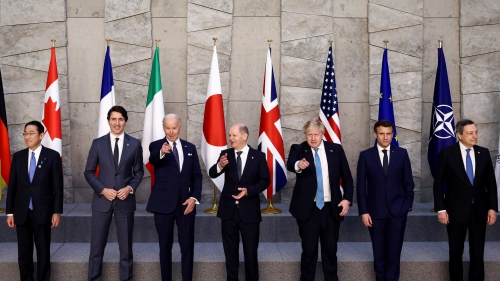What made Taiwan an ecnomic giant?

Like Europe, the Asian continent too came out of World War II battered and bruised. It also suffered horrors in the form of the callous atomic bombings of Hiroshima and Nagasaki.
In addition there were the upheavals brought about by colonization and imperial rule. People were trying to throw off the yoke of colonialism and foreign domination.
China was one such country. Forced to subjugate to British hegemony after the Opium War and the Treaty of Nanking, China went through upheaval after upheaval.
The death of the Empress Dowager in 1911 and the Boxer Rebellion were watersheds in modern Chinese history. Occupation of large provinces by Japanese troops also added more misery to a people who wanted to breathe freely. However, the Chinese decided it was they who were the main actors in this great drama, and in 1949 China freed itself completely from foreign domination.
But in the process, it became two countries - Mainland China and Taiwan. With an area of 36,000 square miles, and a population then of about 15 million that has increased today to 22 million and a per capita GNP that exceeds $10,000, the Taiwan of today is a far cry from that of 1949.
The nationalist leaders under Chiang Kai-shek who adhered to the ideals of Dr. Sun Yat-sen, the founder of the Kuomintag party in 1925, had to bear hardships to realize their ideals and aspirations. Chiang's move to Taiwan was a landmark. There began the story of this great nation. While maintaining a somewhat autocratic system, Chiang Kai Shek started on the road of nation building.
While other nations who achieved independence around the same period dabbled in imported politics and economic systems alien to their culture, the people and the government of the Republic of China adhered to their traditional Chinese culture. Almost single-handedly they fought to pressure their identity and tradition. Unlike others theirs was a battle of survival.
On this island, the word was "produce". Combining Chinese work ethics and entrepreneurial abilities and adding that to their skills, they turned this small island into an industrial and trading giant.
That was no picnic, nor something that just happened one fine morning. That was the result of long and hard hours of toil. And even preserving what they had achieved as a struggle. Though almost ostracized by the world, isolated in the comity of nations, and finally overshadowed by mainland China, Taiwan did not lose its global position in the world of business and industry.
The boom in the Middle East saw Chinese involvement in development. There were few projects where the Taiwanese did not play a pivotal role.
Mixing the old with the new and the East with the West, a dynamic political and cultural influence pervaded society. It was a nation on the go. Factories, mills, workshops, service industries all began, contributing to the GNP.
It was this resilient spirit that projected Taiwan to the forefront and into the league of Asia's economic giants.
An Arab friend once asked me as to why some Arab countries, who also had achieved independence and possessed similar resources as Taiwan did, had not achieved the same success rate. "We work and they work", he added.
Yes, I said, we work and they work, but they work hard and they produce. In the final analysis that's what counts.

















